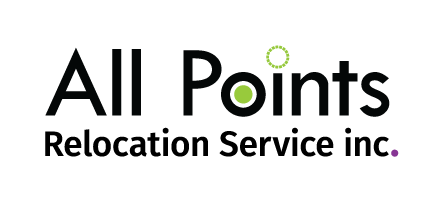Whether you are bringing foreign employees to work for you or managing subsidiaries worldwide, you must have a few things in mind when mentioning permanent global relocation.
1. Visa and Work Permit
If your HR sector is used to domestic relocation, you may find it complicated to navigate immigration documentation, so you may want to engage a consultant to manage the process.
Look into the specifics of what the employee will require to obtain a visa and work permission in the new nation. Remember that all permanent relocations begin with temporary work permits. If the employee’s family accompanies them on the trip, the consultant can help them with visas and immigration paperwork.
2. Tax and International Compensation
Taxation is a complicated topic. Exiting a jurisdiction incorrectly may result in tax repercussions. An exit tax interview is required if an employee or recruit has any assets or investments. The individual must also be aware of the tax regime they are going on and any assets or potential investments.
For international compensation, a balance sheet approach bases an expatriate’s wage on the going rate in their home country for a similar position. Typically, organizations will provide additional allowances or reimbursements as needed, ensuring that employees can retain their current living level once they migrate.
3. Moving
Many businesses allow employees to select their own movers, but that can be a mistake. Poor financial judgment can hurt both the company and the employee. A single blunder can cost you a lot of time and money and cause many hassles for your employees and HR. A Relocation Management Company knows everything there is to know about the relocation process.
An RMC manages moves every day. They think of the things that the employee hasn’t thought about and ask the questions they haven’t considered. Not only does an RMC have volume savings with movers, but they also have close ties with them and can assist your staff if something goes wrong.
4. Destination Services
Moving to a new nation can be nerve-wracking. There’s a new city to get to know, a home to find, and all those administrative procedures to complete. In Canada, obtaining a Social Insurance Number, health insurance, and a driver’s license is part of the local registration process.
Moreover, employees travelling with family need to decide on education and a good neighbourhood to move to. One thing that can help with a successful relocation is a destination services plan, which your RMC can help you build.
5. Permanent Resident Sponsorship
After a while, workers relocated to Canada may consider becoming permanent residents. According to the Canadian Government, a permanent resident is an individual who has been awarded permanent resident status after arriving in Canada but is not a citizen.
High-competitive industries like high-tech may need to relocate recruits or employees with hard-to-find skill sets. A sponsored PR Visa Application can be a compelling draw to those applicants with your competitors’ competitive perks.
Today, someone can become a permanent resident if they have a job offer, are skilled workers, or open a start-up. Work permit holders frequently use Express Entry to apply for permanent residency.
This may be a risk for a business owner because the employee may suddenly work anywhere in Canada. However, if your industry requires competent people, you must provide compelling rewards, including the possibility of permanent residency.
Trust is an important part of the expatriation process, and an RMC can help you solve most of your doubts. Contact us and learn how All Points can assist you during this process.

